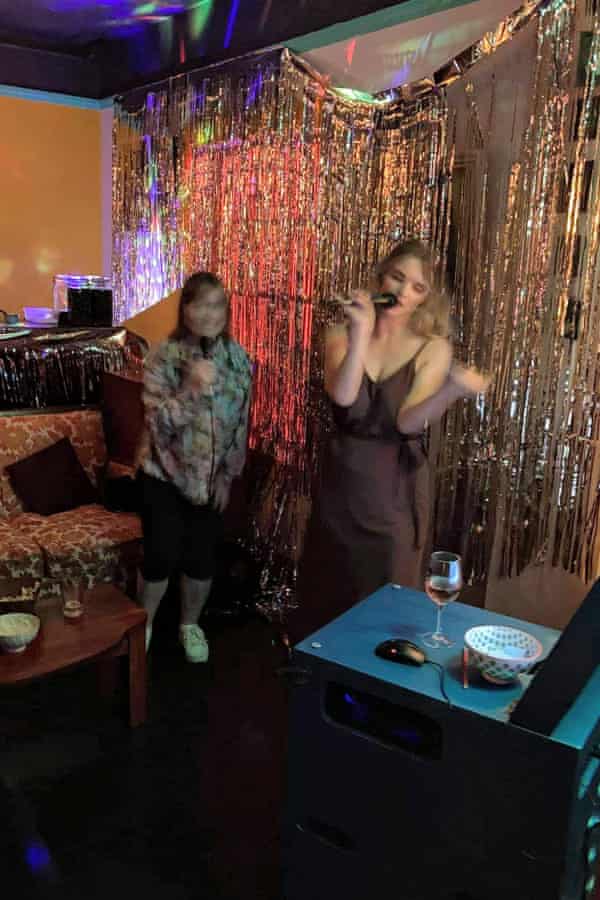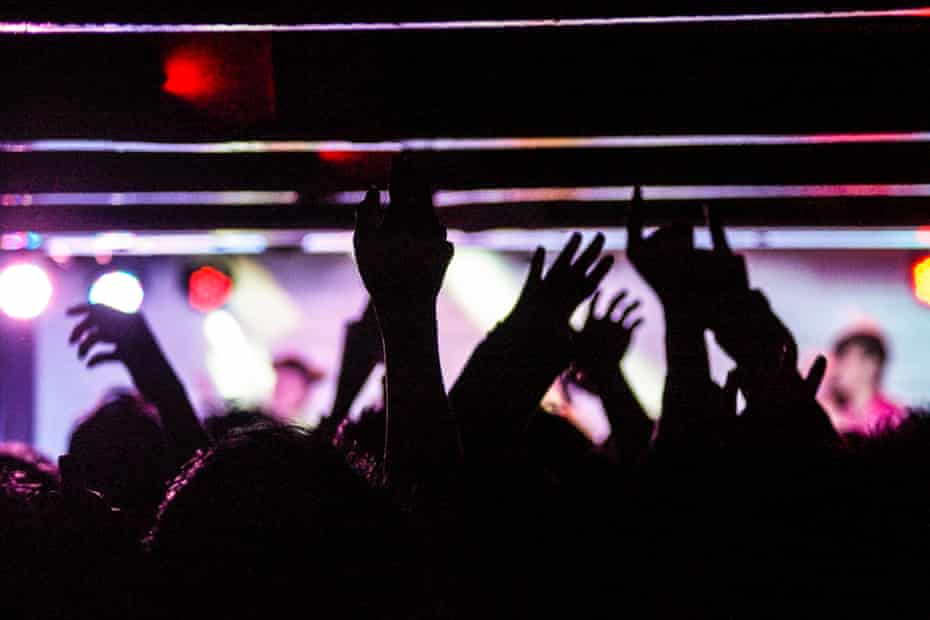Doing some dodgy eyeliner, wobbling in my heels from lack of practice, forgetting to eat dinner: it was Saturday night, and it was as if I was going to my first-ever house party, at 29.
Really, I was just rusty. I had arrived back in New Zealand, where I grew up, from London in late December. I had been lucky to weather the pandemic and months of lockdown relatively unscathed, but when I’d landed at Auckland airport it felt like a siren inside my brain finally fell silent.
For my first six weeks out of quarantine, normalcy had a psychedelic quality, and I found that I could not stop talking about the dire contrast with overseas. But as soon the sense of threat had passed, the rhythms of daily life proved irresistible, and I quickly fell back in step – albeit somewhat awkwardly.
Some of my pandemic-induced brain fug took time to shake off. Ordering from menus was overwhelming, as though I was unable to conceive of dishes other than those I had recently eaten. I had become so used to being always at home, I kept neglecting to account for travel time in managing my workday.
And I was dismayed to find that I had lost my grip on an ability I’d honed over 15 years: I did not know how to party anymore.
From the over-familiar, manic cheer of a fellow survivor of my first month (“Isn’t it a BEAUTIFUL DAY?” I shouted at strangers), at my first house party, my conversation calcified. I did not want to bring down the mood with the C-word – but when acquaintances asked what I’d been up to, I struggled to know what else to say.

But then the cheap bottle of white worked its magic, and the stilted small talk smoothed out, and I was whirling from one group to another as if turning on an axis at my elbow – back in a game that I was out of practice at, but delighted to discover that I still remembered how to play.
Over the past year, I had suppressed my extroverted instincts out of necessity, becoming content with a walk in the park, a stop-start board game over Zoom, and a social circle of six. What a profound pleasure it was to bounce between old friends I would never have dreamed of video-calling but was delighted to see, to shore up acquaintances with the alacrity only alcohol can induce, to splinter off into clusters and rejoin the crowd.
Then, too soon, the speakers failed, cars pulled up outside and people started making their goodbyes. Nearly a year out of lockdown, no one shared my post-pandemic urgency to continue the night. For them, it was just Saturday; for me, it was like rediscovering some ancient witchcraft and, like a Down–Under Cinderella, I was not going home before the clock struck 12.
I strong-armed two friends into coming with me to “town”, the party strip of Wellington we’d frequented as students, where we went to a bar that we had felt too old for even then. It was the place where you wound up in the absence of better ideas, that played the same well-worn floor-fillers every night and that you spoke of slightly shamefacedly the next day.
Sure enough, we walked in and instantly sobered up. The bar was wet and the floor tacky from sloppy shots and misjudged Jägerbombs. Men circled women as all of us shouted along to Smash Mouth: Didn’t make sense not to live for fun, your brain gets smart but your head gets dumb.
It was, objectively, horrendous. I was euphoric.
By leaving London when I had, I’d skipped the worst of lockdown – but almost a year of all work, no play had still taken me close to breaking point. In the weeks before my departure, I had caught myself craving the fizzy feeling of having a crush on someone: emblematic of a certain texture that had been lost from life after months on end of grey days.
The grind of it felt like a sort of spiritual abstinence. More than sex, necessarily, I missed the promise and possibility, the intrigue and effervescence of a night out. In that terrible bar, shouting the lyrics to Rock DJ with old friends and tens of strangers , I felt it return – and it was a surprise, and a relief, to know that it had not gone for good.
Staggering home at half-three, messaging friends in locked-down London, I told them so. “I don’t think a voice note has ever made me happier,” one replied with audible wonder. “You went to a bar? You queued? There were people there? Also…” His voice suddenly hardened. “Who the FUCK is leaving parties at 11pm? Do they not understand how lucky they are?”
I woke up the next morning with a headache and a peaceful, sated feeling. With that night out, it was like I had reclaimed a final frontier, and I slotted back into my life before Covid. Partly that reflects how nominally I had been affected – an enormously privileged position, even before I escaped to New Zealand. But the ease with which I was able to resume my pre-pandemic routines and preoccupations – the way just the passing days seemed to move me along – struck me as extraordinary, and hopeful.

For the first time, I understood that there will be a time post-Covid – that it will arrive for some of us sooner than others, but all of us eventually. We may even be shocked by the speed with which we put it behind us, swept along by the momentum of days into nights.
When the weekend came around again, I went to a gig: Chelsea Jade Metcalf, a New Zealand singer based in Los Angeles, who had also returned in the new year. From the stage she regarded the tightly-packed crowd with wide eyes: “It’s like a dream,” she said.
I was struck by the same feeling – profound gratitude for this impossible Friday night, sadness for those I could not share it with – as hundreds of voices joined in for Metcalf’s gleeful refrain: I come alive in the pitch dark.
I bumped into an ex’s sister, a friend’s ex, acquaintances I had not seen for years. I got blisters from well-worn heels, and mysterious bruises that took weeks to heal. And on my way home after midnight, talking to friends in London 12 hours behind, I told them of all tomorrow’s parties – which lie in store for them, too.
This content first appear on the guardian
